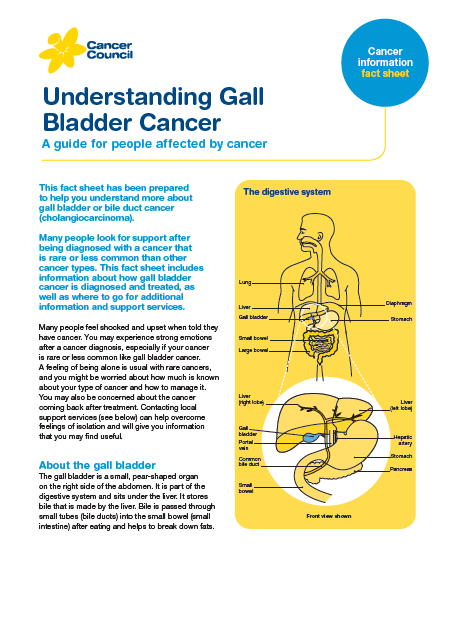- Home
- Gall bladder cancer
- Managing side effects
Managing side effects
Here we look at the different side effects of adenoid cystic carcinoma (ACC) and its treatment, and ways to manage these.
Learn more about:
Overview
All treatments can have side effects. The type of side effects that you may have will depend on the type of treatment and where in your body the cancer is. Some people have very few side effects and others have more. Your specialist team will discuss all possible side effects, both short and long-term (including those that have a late effect and may not start immediately), with you before your treatment begins.
One issue that is important to discuss before you undergo treatment is fertility, particularly if you have been diagnosed at a younger age and want to have children in the future.
For more on this, see Fertility and cancer.
After treatment for gall bladder cancer (especially surgery), you may need to adjust to changes in the digestion of food or bowel function, in particular diarrhoea. These changes may be temporary or ongoing and may require specialised help. If your gall bladder has been removed, you can still break down fats in your small intestine.
The bile simply flows directly from your liver to your duodenum, rather than passing through your gall bladder first. If you experience problems, talk to your GP, specialist doctor, specialist nurse or dietitian.
Common side effects
| Surgery |
|
| Radiation therapy |
|
| Chemotherapy |
|
→ READ MORE: Life after treatment
Kathleen Boys, Consumer; Dr Julian Choi, HPB Surgeon, Western Health and Epworth Hospital, Vic; David Fry, Consumer; Dr Robert Gandy, Hepatobiliary Surgeon, Prince of Wales Hospital, Randwick, NSW; Yvonne King 13 11 20 Consultant, Cancer Council NSW; Elizabeth Lynch, Consumer; Dr Jenny Shannon, Medical Oncologist, Nepean Hospital Cancer Centre, NSW.
View the Cancer Council NSW editorial policy.
